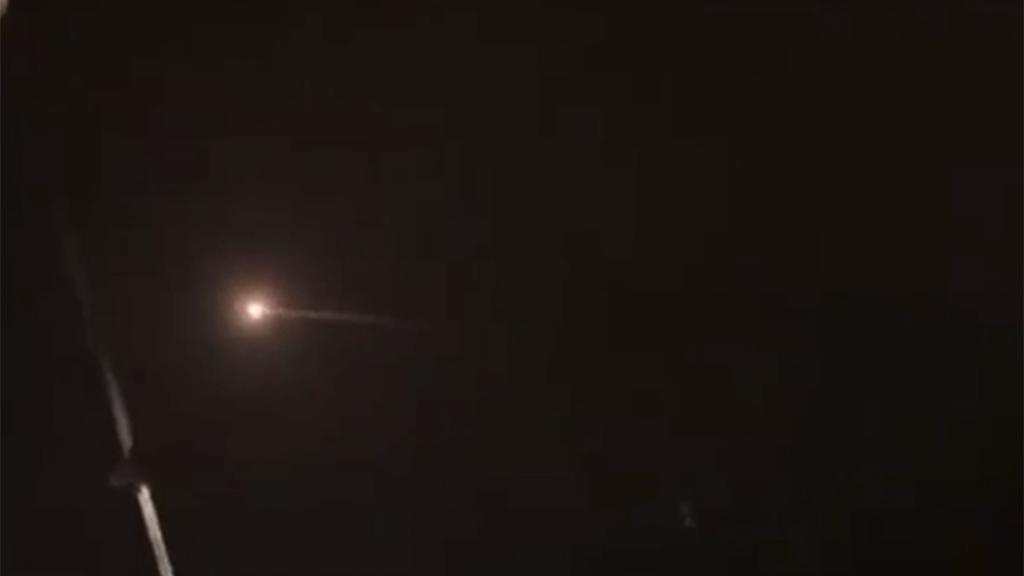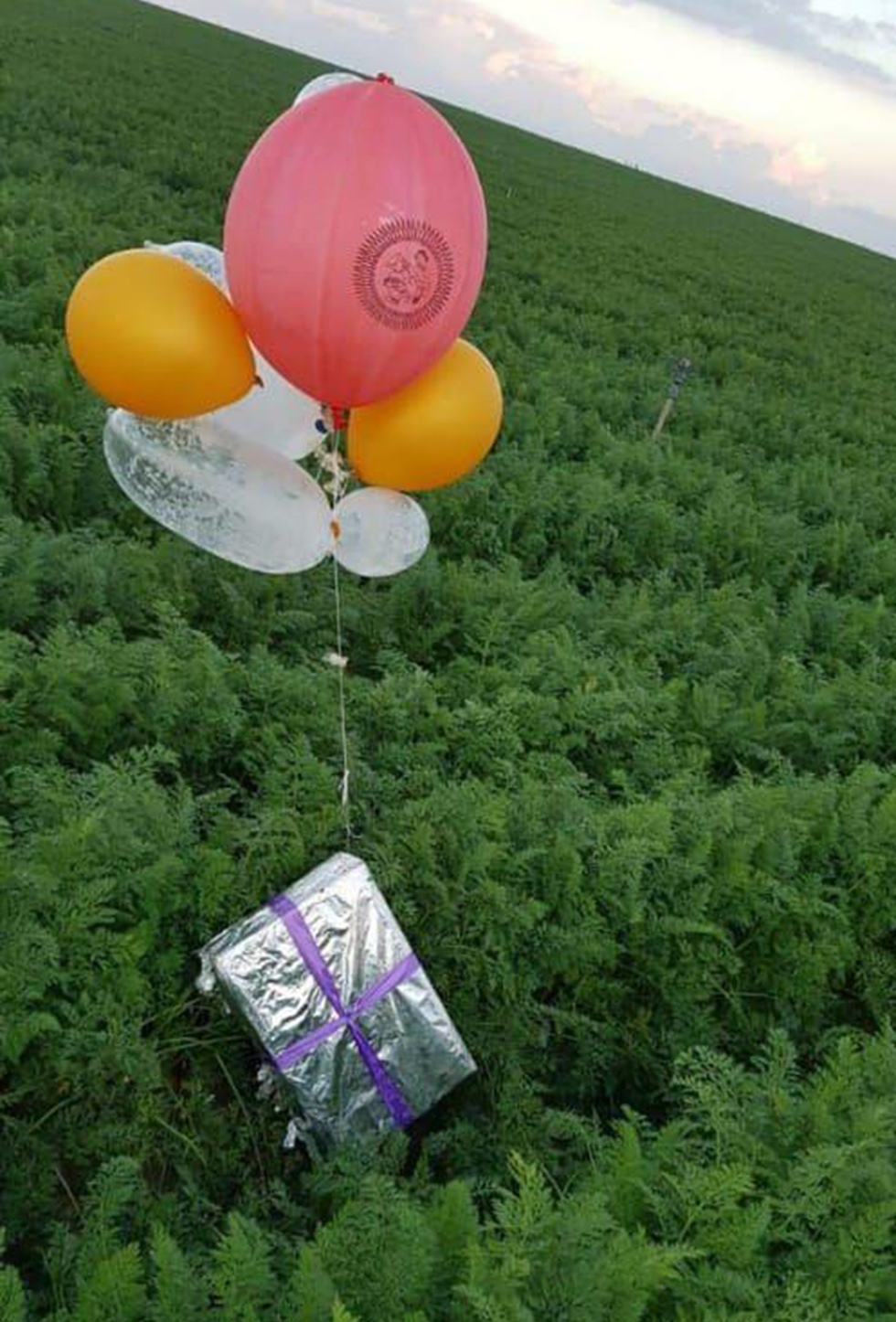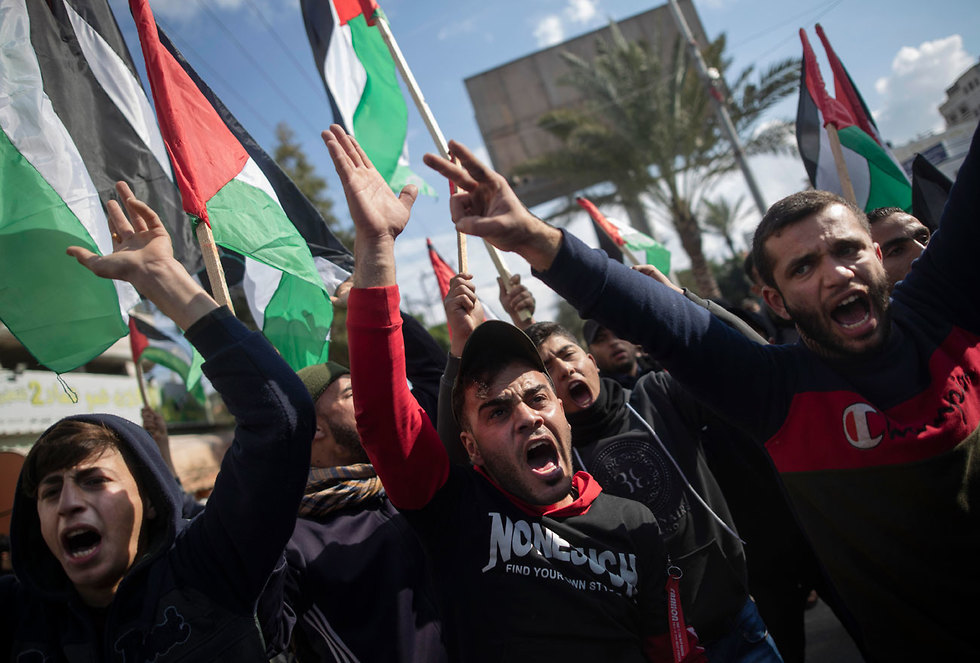Getting your Trinity Audio player ready...
Israel Defense Forces launched airstrikes on six Hamas targets in the southern part of the Gaza Strip on Friday shortly after Palestinians fired three rockets into Israel, two of which were intercepted, the military said.
There were no reports of casualties or major damage from the exchange of fire overnight, which came amid heightened tensions after President Donald Trump released his Mideast plan, a U.S. initiative aimed at ending the conflict that heavily favors Israel and was rejected by the Palestinians.
The Iron Dome missile defense system intercepted two of the rockets and a third landed in open fields near the town of Sderot, causing a small fire to break out.
A three-week-old baby and her mother were injured as they rushed for cover in their home.
The IDF said Palestinian militants had also launched incendiary balloons toward Israel and that a sniper had shot an observational antenna.
It said it struck targets linked to the Hamas terror group in response, including "underground infrastructure used to manufacture weapons."
An IDF spokesman said the strikes were conducted against "a wide array of targets belonging to the Hamas terror group. … constituting a real blow to Hamas’s abilities to build up [its forces].”
IDF officials say that the military holds Hamas responsible for what is happening in the Gaza Strip and it will carry the consequences for any action against Israeli citizens.
Gaza has been relatively calm in recent months as Egyptian and UN mediators have worked to shore up an informal truce between Israel and Hamas, which rules the coastal territory.
Hamas has curbed rocket fire and rolled back weekly protests along the frontier that had often turned violent. In return, Israel has eased the blockade it imposed on Gaza after the group seized power from forces loyal to the Palestinian Authority in 2007.
Both Hamas and the Palestinian Authority have rejected the Trump plan, which would allow Israel to annex all of its Jewish settlements, along with the Jordan Valley, in the West Bank. The Palestinians were offered limited self-rule in Gaza, parts of the West Bank and some sparsely populated areas of Israel in return for meeting a long list of conditions.
Hamas has vowed that "all options are open" in responding to the proposal, but is not believed to be seeking another war with Israel.
Thousands of people took to the streets after Friday prayers in neighboring Jordan to protest the plan.
Jordan, a close U.S. ally and key player in previous peace efforts, has warned Israel against annexing territory. Jordan and Egypt are the only two Arab countries to have signed peace agreements with Israel.
The protesters waved Jordanian and Palestinian flags and burned Israeli flags despite the rainy weather. They chanted "Trump is a coward" and "Here we are, al-Aqsa," referring to the Jerusalem mosque on a site sacred to Jews and Muslims.
Palestinians have held small, scattered protests in recent days condemning the Trump initiative, and there were concerns that larger demonstrations and clashes would break out at the al-Aqsa mosque, but Friday prayers there concluded peacefully. The Islamic trust that manages the site said an estimated 30,000 worshippers attended the weekly prayers.
The site, known to Muslims as the Haram al-Sharif, or Noble Sanctuary, is the third holiest in Islam, after Mecca and Medina in Saudi Arabia. It is home to the iconic gold Dome of the Rock and the al-Aqsa mosque.
Jews refer to the site as the Temple Mount because it was the location of the First and Second Jewish Temples in antiquity. The Western Wall nearby, the only remnant of the Second Temple, is the holiest place where Jews can pray.
The hilltop shrine is managed by an Islamic trust under Jordanian stewardship, and day-to-day affairs are governed by informal understandings with Israel known as the "status quo." Non-Muslims are allowed to visit during certain hours, but Jews cannot pray there.




